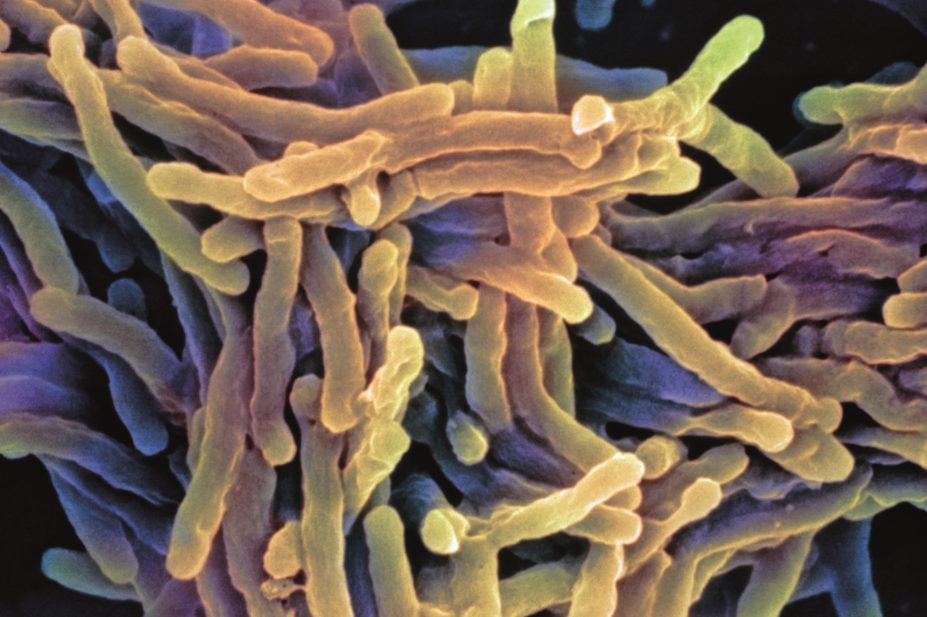
A. Dowsett, Public Health England / Science Photo Library
Tuberculosis (TB) causes nearly 2 million deaths each year. A hallmark of the disease is the presence of pulmonary granulomas, which are morphologically similar to solid cancerous tumours, featuring a hypoxic microenvironment and areas of fibrosis.
New research[1]
reported in PNAS suggests that TB granulomas also have a functionally abnormal vasculature with enhanced expression of vascular endothelial growth factor (VEGF). The researchers also showed that bevacizumab, an anti-VEGF drug widely used to treat cancer and eye disease, was able to normalise the granuloma vasculature, improve the delivery of small molecules, and decrease hypoxia in a rabbit model of TB.
The findings provide “a potential avenue to improve delivery and efficacy of current treatment regimens”, the researchers conclude.


